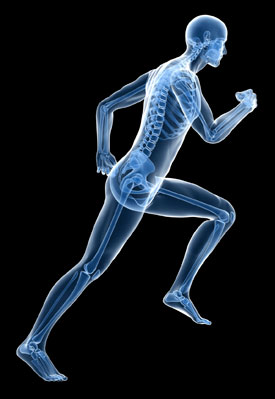Physical Medicine and Rehabilitation
 “Specializing in restoring function to people”
“Specializing in restoring function to people”
Our primary goal is to help our patients enhance the quality of their lives by reducing their discomfort and increasing their level of function and activity.
We treat people with acute or chronic dysfunction due to illness or injury to the body, whether the discomfort is caused from a medical problem, accident, work related injury, or sports injury.
The non-surgical, non-invasive treatment includes maximizing a patients level of function so that they may go about their daily activities, while minimizing their levels of discomfort while performing these activities.
Rehabilitation services are available for patients suffering from a variety of disorders, including, but not limited to cervical spine disorders/neck dysfunction, connective tissue disease, cumulative trauma disorders, disabilities, foot disorders, hand disorders, inflammatory arthritis, low back dysfunction, multiple sclerosis, myopathy, old polio/post polio syndrome, peripheral neuropathy, osteoporosis, scoliosis/spinal cord injury, sports medicine, stoke, TBI, upper extremity soft tissue injuries, and vascular disease.
Our primary goal is to help our patients enhance the quality of their lives by reducing their pain.
Physical medicine and rehabilitation (PM&R), also known as physiatry, is a branch of medicine that deals with disorders of the bones, muscles, and the nerves. Apart from diagnosis and treatment of these disorders, physiatry also involves helping people prevent such disorders from occurring in the first place – after all, they are capable of causing permanent impairment in some cases.
The three main areas in which Physiatrists, also known as rehabilitation physicians, specialize are as follows:
· Rehabilitation of those who suffer from severe impairments such as Cerebral Palsy, Brain injury, stroke, injury to the Spinal Cord, etc.
· Diagnosis and treatment of pain syndromes and musculoskeletal injuries
· Electrodiagnostic Medicine: Evaluation
· and testing of nerve and muscle
· disease or injury
·
Even in cases where surgery is required, physiatrists coordinate with surgeons so that as soon as the surgery is over, they can take over the case again and continue to care for their patients. Regardless of which kind of physicians are involved – orthopaedic surgeons, neurologists, or health professionals such as physical or occupational therapists, psychologists, and speech pathologists – in helping patients solve their individual problems, physiatrists work with them and ensure that the patients are able to achieve a full recovery.
